Learn the ancient secrets of how to get your ass beat. Joking aside, I’m talking about how to lose a fight without getting beat up.
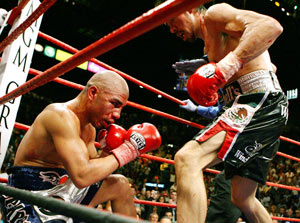
Everybody seems to think they can coach you through a losing fight. Every wannabe trainer thinks they have the magical advice to help you come back and win. “More jabs” they’ll whisper in between rounds, or maybe even the ever-popular “keep your hands up!”
Of course, this is easier said than done. You’re tired and you’re hurt. You can barely see the punches coming at you and you can’t get out of the way fast enough! Everything you do, your opponent counters. The natural instinct is to fight back by throwing blind punches into the air which tires you out even faster. Now that your arms are tired, your opponent slips all your punches easily and so you throw even harder—wasting more energy. The harder you try, the harder you get beat up.
So now you’re panicking and trying desperately to run away. You jump away with your tired legs whereas your opponent only has to walk you down. You’re trapped along the ropes and taking shot after shot. You even duck but eat a huge uppercut in the process. You’re tired, bloody, losing, and have no hope. Don’t throw in the towel just yet. I promise you, there IS a better way…
“The better way”, as funny as it sounds, is what I call the “the art of getting your ass beat”.
So what is this “art” all about? It’s about learning how to lose fights gracefully. A crucial skill when it comes to fighting! EVERY fighter must learn this. This skill is perhaps just as important as learning how to win fights. It’s not about learning how to turn a losing fight around, it’s about learning how to make the most of a bad situation.
It doesn’t matter how good you are. Sooner or later, you WILL end up in a losing fight.
You WILL be outmatch in athleticism, skill, or tactics and you WILL have to decide between 2 choices:
- Go out like a warrior and die on your shield. That is, to go out fighting until you get knocked out.
- Tighten up your defense, stay relaxed, and avoid as many shots as you can until the fight is over.
For whatever reason, many fighters don’t believe in #2. They think #2 isn’t manly enough or that it’s for sissies. Is this just machismo talk or is there actually some truth to this?
Without having to think too hard, #2 actually does seem like a logical choice. You’re going to be training and fighting for a long time. Putting your ego in check and preserving your body is a smart idea to keep yourself able to fight bigger battles later. It’s more important to learn than it is to take a beating. Why get beat up if there is no benefit other than to make you feel tough?
So does that make #2 the winning choice in all occasions? It depends…
Going For Broke VS Minimizing Damage
#1 (Going all out) is for real competitions. When you’re losing a big fight. A loss is a loss. This loss could mean a tournament elimination in the amateurs or a title belt loss in the professional ranks. You might as well go for broke, and at the very least entertain the crowd. Who knows, you might actually win! That’s much better than accepting a loss. Going all out is totally worth it when there’s actually a reward for winning!
#2 (Going into defensive mode) is for training. Whenever you’re losing a fight in training, learn to lose the fight gracefully. There is no reward for winning a fight in training. Winning a losing fight is often more about testing your physical tolerance than it is about your skill tolerance. (After all, if you had the better skills in the first place, you’d be winning.) Even if you win a sparring match in training, everybody knows it’s just training.
Boxing is a brutal sport. Even the “winner” takes a beating. I don’t know of many sports where winners take such a beating to “win”. So don’t do it—don’t take a beating to win a sparring match. Save yourself. Your number one focus in training is to improve your skills, NOT to win. Save that “winning mentality” or “warrior mentality” for actual competitions when it matters most.
In training, protect yourself so that you may train another day. Going warrior mode all the time is a fast way to get you beat up and destroyed. Not only will you wear out faster and possibly still lose the fight, you’ll learn less because you were too busy trying to overcome your opponents’ undeniable advantages in skills/power/size as opposed to staying calm and trying to make the most of a losing situation.
How To Lose A Fight
Losing a fight gracefully can sometimes be the silver lining when taking a loss. Although you might not have won the fight, there is much to be proud about in knowing that you didn’t get knocked out and also that you were still able to contest the fight skillfully despite being completely outmatched.
The 2 goals of losing gracefully are: 1) to minimize damage and 2) to fight with skills. Both of these goals contribute to each other in a circular relationship. By minimizing the amount of damage you take, you will be more able to concentrate on fighting with skills. And by fighting with skills instead of physical aggression, you will have a higher chance of minimizing the amount of damage you take!
Every technique you use in a losing fight
should contribute to minimizing damage or using skills.
Forget about the lucky home run punch. Forget about the fancy tricks. You’ve already taken massive shots, and you’ll probably eat a few more before the bell sounds. It’s time to protect yourself intelligentally! Don’t just put up a guard, bring out your defensive boxing skills. Many of the skills you learned for offensive purposes can actually be used for defensive purposes.
Minimizing damage requires much more than a tight guard. Your defense should be more than just a static position. You can use footwork, rhythm, and other boxing skills to improve your defense just as you previously did for offense.
So here we go… a few fight tips to help you maximize the not-so-rare opportunity of losing a fight:
1) Eyes on Opponent
Seriously. Don’t dis-engage. Pay attention to your opponent and stare him down. There is nothing an aggressive opponent loves more than to attack a blind man. To a wolf, it’s like a blind sheep.
“Death begins in the eyes.
You can see the moment when one gives up hope.”
– Dereck Joubert
When a fighter turns away from his opponent, he’s communicating that he doesn’t want to fight anymore. When a fighter looks away, it communicates that he wants to be somewhere else and that he no longer wants to face his opponent. This is a natural instinct in fighting.
DON’T be that guy. Don’t give up hope and don’t look away from your opponent. Hang on to your fighting spirit for just a little while longer. If not in your body, then at least in your eyes. Keeping your eyes on your opponent allows you to see incoming punches and psychologically keeps your opponent at bay.
2) Avoid the Second Punch
The second punch in every combination is usually the most dangerous. The second punch will be the best aimed and carries most power. The second punch carries the most deadly intent. Think of a boxer moving in with his jabs. He’ll keep moving in with multiple jabs but it’s not until the jab lands that he decides to throw a hard right hand (the second punch). So now you realize that the jabs was just him testing the first punch (the rangefinder) over and over and that his follow-up right hand (the second punch) is typically followed by the rest of the combination (the other hard punches).
Avoiding the first punch doesn’t disrupt his combination, his right hand can still land in effectively and leave you vulnerable to other punches.
An inexperienced boxer is one that avoids the jab,
but gets hit by the right hand.
Don’t try to roll and slip jabs! When you take his jab, you bait him into throwing a hard right. Keep an eye on that giant right hand. Yes, block one jab after another but be sure to pull your head out of the way when you see that right hand coming. Do NOT be distracted by the jabs—look past them as you watch for the bigger punches! Now, I’m not suggesting for you to eat jabs—not at all. I’m suggesting that you block the jabs with a simple defense and save your energy for slipping the big punches. If you slip his jab, he’s not going to follow-up. He’ll just move closer into you and throw another jab—which will tire you out if you keep trying to slip every jab.
Avoid that second punch and you will have disrupted his entire combination. With a little bit of luck, he may have over-committed to that punch and thrown himself over you entirely, giving you a precious opportunity to clinch or slip out of harm’s way.
3) Stop and Go
Don’t just run away the whole time. You’ll only get tired and run out of room faster. Instead, you should stop, take a step, stop, take a step, repeat. It’ll force your opponent to have to keep stopping and moving. With every stop and go, you’ve gained a few precious seconds where your opponent had to think instead of throwing punches.
Let’s imagine the scenarios:
a) You back-pedal non-stop until you’re backed into a corner and tired. he chases you down, traps you against the ropes, and gives you a beat down. you have nowhere to hide, no room to escape, and no energy to keep him off you. (this option sucks, so don’t do it)
b) You stand still and bait him to throw punches. He moves in with a 1-2 as you take one step away. His jab might land but his right cross will miss because you backstepped away. Now because you didn’t try to jump away entirely, you have more energy and more room behind you to repeat this over and over until the round’s end. Sure you might be hit by a ton of jabs, but at least you’ve gotten out of the way when the big shots come. That’s not so bad! (much better option, do this one)
4) In and Out
This is the advanced version of the “stop and go” tactic. If you want to maintain your room to move, you’re going to have to fight for your ground. Don’t just backpedal until you have no room to move.
The tactic this time is sit on the edge of range (that’s the distance where you’re slightly within his reach). This time your plan is to walk yourself into danger and then pull yourself out of harms way as soon as the punches start coming. It’s scary but it’s much better to walk into punches and back out than to have punches following you around the ring. Think about it. If you walk yourself into range, your opponent might not bother to move forward into you, he’ll punch from where he is, which allows you to control the distance!
The “In and Out” tactic isn’t limited to just footwork. You can do the same thing with your head. Just stand on the edge of range and lean your head in. As he aims for you head, just pull it back out, BUT MAKE SURE YOU PUT IT BACK IN AGAIN. If you pull your head back out and leave it out, he will advance onto your ground to get closer to your head. Whether it’s foot movement or head movement, just remember to keep going IN AND OUT!
5) Head or Feet
Constant defense relies on constant movement.
To keep yourself (the target) moving, you only have to either move your feet or move your head. That’s all it is, one or the other—BUT NOT BOTH AT THE SAME TIME! Why? Because you’ll get tired if you’re constantly moving your entire body at the same time. Keep it simple and stay relaxed. When you’re getting pursued, just take a step back, two slips, take another step, one slip, whatever…repeat. Move your feet and then your head, and do it all over again. No need to be whipping your head around all the time as you’re trying to jump all over the place. It’s a total waste of energy. You either move your head or move your feet—just make sure you’re constantly moving. I learned this since the second week of boxing.
6) Lower Your Hands
Yes, I know it’s crazy but just hear me out. If you show a little bit of your face, at least then you’ll know he’s aiming for your head. If you cover your head entirely, he’ll throw punches in all sorts of crazy directions making it impossible for you to know where he’ll throw next. Drop your hands a few inches, rest those shoulders, but be ready to defend. What you don’t want to do is drop your hands entirely. That’s just dumb and you’ll be caught in no time.
The advantage of baiting with your head is that you can avoid head punches by using minimal amounts of energy. A quick little slip or parry of the hand easily deflects head punches. What you dont want to do is take any body shots. Body shots sap your strength, take away your legs, and prevent you from moving around the ring.
7) Throw Some Feints
Yes, we know you’re too tired to throw real punches. However, you can still put your opponent on the defensive by faking some punches and buying yourself a few precious seconds. The feints are more effective if you actually throw some real punches every now and then. You feint can be anything, a quick jerk of the arm, a quick forward step with your front foot, or maybe just you taking a sharp breath as if you were going to punch. A great time to fake him out is right after you land a big counter. Jerk your head towards him as if you’re going to follow up with some big shots. He might panic and jump away which will buy you some time to walk around and catch your breath.
8) Work on New Skills
Remember those tricky punches or fancy footwork you’ve been practicing aroung the bag? Well here’s your chance to try them out. You’re already losing the fight. Might as well have fun and try something new. Who knows, it might work, especially if your opponent thinks you’re all out of ideas by now.
Things you shouldn’t do when you’re losing
Getting Sucked into a Brawl
I thought this would be obvious but still, I’ll remind you again. DON’T FIGHT BACK! Don’t fight fire with fire. This will play right into his hands. He knows your tired. He WANTS you to punch with him until you tire out completely, which is when he’s going to hit even harder.
If your offense wasn’t working when you had energy, it has less chance of working now that you’re tired. Unless you see some huge openings, don’t go for it!
Looking for the Home Run Punch
The harder you try to knock him out, the easier you make it for him to knock you out. For demonstrative purposes, here’s a tired Ricky Hatton chasing Floyd Mayweather around the ring. Not so great, see? The lucky punch is for the movies. It doesn’t happen so much in training, and it happens much less if you’re wearing headgear in training. Don’t do it.
Even if it works, you’ve proven nothing. It’s still just a lucky punch and doesn’t take away from the fact that you’ve been losing the whole fight. Everybody knows who the better fighter was all along.
Run Straight Into Your Opponent
Some guys think this is clever or warrior-like. They brag to me about how they go forward when they’re tired and hurt. Think of injured sheep running towards a wolf. If this sounds dumb, that’s because it is.
Some boxers do it as a psychological ploy as if to prove they’re not hurt, or that they’re not afraid. Well, you won’t be fooling anyone—I can assure you that. Some boxers just do it all wrong. They hang their head in which leaves them open to counters. Or they abandon the jab and basic defense which leaves them open to just about anything. Yes, going forward CAN be a good tactic if you’re doing it to smother his punches. But when you’re tired, it doesn’t work so well. Trust me.
The only time I would ever recommend this tactic is if you’re the bigger guy. Otherwise, make him work and make him come to you!
Constant Ducking
There’s a difference between ducking (bending at the waist) and squatting (bending at the knees). When you’re trying to avoid punches by going under them, ducking isn’t the greatest option. Bending over at the waist allows them to hold you down at the head which tires you out even faster and also throw punches you can see because you’re looking at the ground. You’ll get hit by uppercuts, hooks, and anything else they decide to throw at you. Just keep your hands up, elbows down and keep moving. Sure sure, you can duck a punch or two here and there but don’t do “standing sit-ups” in the corner!
Clinching
Clinching is a tricky and often misunderstood tactic. Everyone thinks you can “just clinch” when you get tired but it’s not so easy. If you’re too tired to hold your hands up to block punches, what makes you think “GRABBING” an opponent’s arm is going to be easy? It may be possible if they’re overly aggressive and leaning into you or they’re shorter than you. But that isn’t always going to be the case.
Clinching does require some skill. From what I’ve seen of clinching, it’s very rare that inferior fighters can clinch superior fighters. I’ve more commonly seen clinching used by the better skilled boxer during fights. They either clinching to avoid fighting on the inside (Ali/Klitschko), or they were momentarily stunned by a big punch (Mayweather/Cotto). Very rarely do I see an inferior fighter actually succeed in clinching against a better fighter.
If anything clinching is a tactic you use early on to stall the fight and keep opponents from getting inside. To rely purely on clinching when you are hurt is risky since it requires you to run into your opponent’s punches. Sure it can work, but think about how tired you are compared to your opponents’. Just how many punches are you prepared to take just so you can lean on your opponent for a few seconds?
(If you do decide to clinch, visualize being tall and long. Don’t think “inside”. Clinches are won by the man on the OUTSIDE of the clinch.)
Final Thoughts on the Art of Losing (hahaha)
Losing a fight is inevitable, but it doesn’t have to be painful or humiliating. You might not always be able to win, but you can certainly defend intelligently and save yourself for another day. Learning how to lose fights without taking too much damage will allow you to spar against higher level opponents. Soon enough, the losses start becoming wins. Just don’t get too big-headed, ok? Good luck.
I hope I didn’t inspire legions of boxers to go get an ass-beating. Don’t be too proud to quit. A loss is a loss. You don’t owe it to your manhood or to anybody’s expectations to take unnecessary punishment. “Those who fight and run away, live to fight another day.” A quitter is a boxer that leaves the ring and never comes back. Protect yourself, your passion, and your future in the sport. Do what’s right for you. If you still insist on going out “like a man”, at least have some respect for yourself. Don’t get knocked out by some chump brawler.





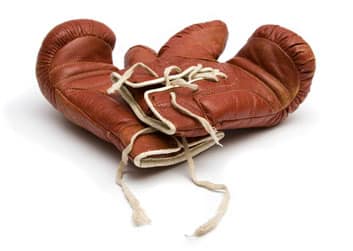
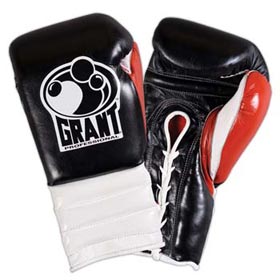
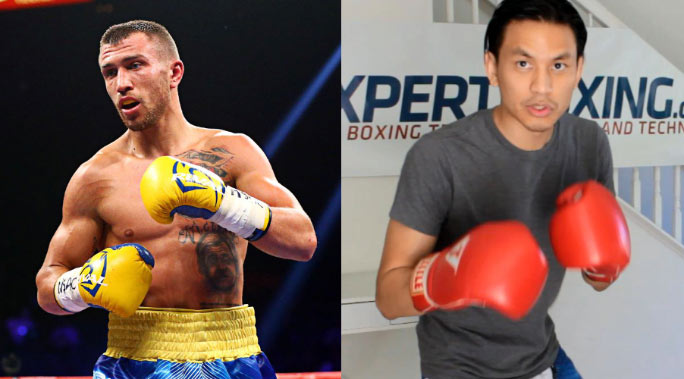

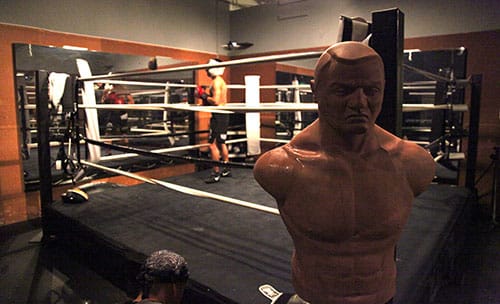
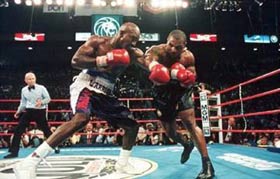
holler
absolutely excellent article!:D
Fantastic article! I think by nature fighters have the “go out guns blazing” mentality. I am by no means a fighter but I am stubborn. Whether it simply is sparing with friends or at the gym when I start losing I start throwing wild over hands in hopes of that lucky shot.
I now realise that it is much more beneficial to get my ass beat gracefully than to go all out.
Thanks again, dude!
I WOULD SAY THIS IS THE REASON BOXERS GET BEAT
Mayweather ”retired” undefeated so not all boxers have to get beat
i have 18 started boxing at 16 and im undefeated 25 fights no lost
im the Champ at 140 in the alexis arguello tournament here in Nicaragua
and im tinking that in 5 years i could go pro
but i aint Thinking about LOOSING
and i never will
anyway this is the first article that i havent like
all of the others have made me outbox all my opponents
Thanks, guys!
@Will Sung – Your story is literally half of all my friends in their first week of boxing. I must say: I am quite proud to see that I have inspired many others to go get their ass beat. hahaha!
thanks johnny this helped alot
Thanks…
Thanks for another great article mate! Keep em coming! Especially looking forward to your next youtube video tutorial… 😉
thank you
I am an educated 5’8 140lb fighter who trains at Eddie Herredia Boxing Club in East Los Angeles, California. And, I have sparred with 1995 National Golden Glove champion Adam “Bomb” Reyes, and former WBC Light Middle Weight champion Sergio “The Latin Snake” Mora. But, I now tend to spar with guys who are anywhere from 190 – 240 lbs. And, this article might have saved my life, at least during training. Thank you.
Sincerely,
Gonzo
Hector Gil
AMAZING!
Respect my friend. With just two words, excellent article!
Thanks everyone for the comments. I have to admit, I was a bit apprehensive when I first decided to write this. But deep down I felt many people just didn’t know how to lose fights properly. Thank you all!
taking an 8 count.
usually the punch that knocks guys out is the 4th 5th or 6th punch in a combo. After you just got hit with a shot that makes you dizzy or wobbly, drop to a knee. This is especially useful in sparring where the result is inconsequential. Don’t try to stay up and “get him back” for that shot he landed. Take a few seconds, clear the cobwebs, and get up. Now get him back.
classroom
The stuff on this website is like an online boxing class. Like online college. I picture some guy in front of students with a power point presentation, explaining the ends and outs of the game by teaching in a classroom setting. It’s probably taken guys years to learn the strategies taught here. Especially this one. I mean some some beatings they probably had take to finally realize these aspects, and here it is in black and white. I think we all owe Johnny a debt of gratitude to for saving us from those beatings.
great
Hey man this is a great article. I knew a lot of the stuff already, but it is great reinforcement, and there are some things in there that I had no idea would work. Now you just need to teach me how to fight tired because thats usually when I start losing haha.
@Mac – there’s actually a guide on the site here that teaches you how to fight tired. Check it out!
That was a great read indeed
how do you grow in defeat? how do you recoup your losses? train harder, spar more rounds, prep more. what’s the most postive, constructive and perspective way to loose a match? with your pride intact and to loose well not win badly?
Train hard and keep trying to improve. Look for constant improvement and you’ll always be in the right direction. Winning will come depending on how well you improve. If you put too much focus on winning, you’re going to be broken-hearted easily. The best champions love the training, love the fighting, love making improvements. Everybody likes winning, but not everyone likes that other stuff.
Is their any such thing as a moral victory in boxing? And if their is what is it?
The moral victories I see are when the underdog makes a tough fight but still loses the fight.
genius, totally changed my way of thinking about defense
Awsome article Johnny, a pleathora of great strategies and tips.
In my opinion, if your opponent is stinging you again and again and you are ‘flustered’, best case scenario (decent energy) is to break of and try and keep a little distance, get your rythym back, don’t get cornered, and then let him come at you, and only counterpunch. Unless, using your judgement, your counterpunch knocks him off balance/critically hurts him, break off after the counterpunch (at most 2, preferably one quick one, or you might get caught), and let him attack again. The goal of this is to frustrate the opponent, and hopefully regain the momentum. Worst case scenario (no energy to hop/footwork/dance out of range), counterpunch as much as possible to disrupt opponent, while positioning yourself so as to not get cornered. It only takes one jab to make contact to disrupt your opponent, give you some space, and throw them off a little. If the opponent simply walks through your jab or right, then attempt a difficult slip/hook counter (block jab, slip right while stepping in, left hook, side-step forcing him to reallign with you), or a ducking in uppercut or hook, preferably to body, then side-step.
In general, block some combos, only using good opportunities to counterpunch. You cannot survive long, as the author points out, by simply absorbing punishment. You need to disrupt the opponent, so as to not get cornered, or let him ‘get on a roll’, or he will eventually corner you, or score a stunning blow and capitalize on it and take you out. The best defense is a good offense. You are most vulnerable while punching, you open yourself up. For this reason, it is best not to punch first, but allow your opponent to open himself up and then strike (when getting your a** kicked).
Showing weakness in any form will only make it worse, and invite extra aggression at a bad time. Poor explanation, but i’ll attempt to clarify with poor analogy. You can dread a peice of work to do and attempt to put little effort in (resulting in taking longer than neccesary), or you can acknowledge that it must be done and get it over with (and use less energy to finish), or you can simply quit and not even attempt it. You can put in a half-hearted defense and end up using more energy and getting beat worse, or put in a good effort and not get yourself in a dire position. It is like choosing to jog the whole way, or walking and then ending up having to sprint and not be able to recover. Always always always breath through the nose. Train yourself to breath through the nose, and spar for hours at a time at max exertion to build your cardio if you want to go many rounds. Always strive to push yourself near or to your limit (whatever that may be, many factors), and you will continuosly improve.
Feinting through shoulder movement and other techniques is a good way to gain yourself a valuable second to position yourself, but do not overuse anything, randomize (like rock, paper, scissors). Ducking/squatting in my opinion is best saved for punches your opponent is commited to and that are slower to follow up on, like a hook or hard reaching right. Good to get in a body shot or pop back up for a hook if time if you’ve ducked. When slipping/squatting it is good to side-step to force your opponent to re-adjust, and/or possibly get a hook in. Momentum from slips can be used to quickly counter, for example slip right and back a little, somewhat cocking a right, and then follow his jab back with your right. Always slip to the outside.
With good footwork and sense of range you can backstep a punch and than step in as it goes back, maybe getting a good jab in with that step. Stepping to dodge instead of head movement keeps you in position to punch, and gives you momentum when you follow the punch back, or allows you to capitalize on an opening if you side-step a punch to the outside, while moving closer or within range in that same step.
In my opinion counterpunching is mandatory for a boxer, and needs to be practiced with partners until you do it automatically without thinking, and practiced while sparring so as to reckognize the best opportunities, and when it is a bad idea or better to block and dodge or in-out or side-step.
In my opinion the goal of endurance training is to make it so that when you actually get in a fight, you find it less exerting than your training, leaving more mental energy.
Accurate knowledge. Thank you for sharing your experience!
How do you cope with a loss?
Fight again. After a couple thousand sparring matches, it doesn’t matter if you win or lose. You lose track and forget anyway.
https://www.youtube.com/watch?v=710XfakHI4k & https://www.youtube.com/watch?v=710XfakHI4k what do you think of these guys defence.
its a great technique it didnot come to egypt 🙁
i feel like this technique can completely destroy a fighter and he will give up much before he should have, if someone is consistently taking shots their ego and confidence are gonna be lower than his energy levels. If you can train yourself not to get bothered by losing id recommend this but if your aren’t bothered by losing whats driving you to win. You need to keep telling yourself your more of a man, you’ve trained harder, bleed more, sweat more, ate better, slept better, the fights yours as soon as you step into the ring and your gonna showcase all the hard work you’ve been committed to through all these weeks of fight camp.
Hi Johnny, well i had my first fight yesterday and I were totally beaten. My face is terrible, I’ve received a lot of punches in the face. Well, it’s okay, it’s swollen and I have some pain. But my eyes are all red (the white part is blood red) and I’m seeing a black point in my right side ( it’s like a fly). Do you know if it’s normal?
Sorry for the bad English.
Maybe something got in your eyes? (Like the vaseline?) I would wait a couple days to see if it’s gone back to normal. Or you can also go see a doctor.
It isn’t the vaseline for sure, I hadn’t any. I received punches in the eye and they’re hurt, just wanted to know if the “fly” is normal.
Thanks, John.
And if somebody else knows something about, please reply. I have to relax my parents hahaha
Felipe, get to a doctor man, and soon – floating spots that don’t go away can be a sign of a detached retina, and the sooner you get it looked at the better!!!
Love this article. Still new and mostly self taught in Boxing, but the point about tucking in and trying to skillfully stay alive is great advice. Once had a Jiu Jutsu match against a Judo guy that completely outclassed me. It was solid dominance on his part. He couldn’t tap me, but he didn’t need to. I was exhausted and sore from all the throws, and all I could say think was “a warrior never gives up.” then the dude got so tired from whipping the piss out of me that he slipped up and when I countered he didn’t have the energy to fight back. I submitted him in the last 30 seconds.
Hahaha, success!
what’s the difference between this article and fighting defensively ?
There are many ways to fight defensively (both for winning and surviving purposes). This article is to focus on what strategies to use what you have no chance of winning.
A great topic that has always fascinated me (seriously!) and I wasn’t able to find anybody bold enough to take it up. I’ve found here practically all the answers, so it really is a great article. Thanx!
Great article. As I am Australian we play a lot of cricket and we are always taught to “put a high price on your wicket” when batting. Don’t just throw your innings away to some stupid shot because you want to try and hit the ball into the next suburb. Dig in, be defensive (but not weak), show skills and technique. I have had to do this numerous times in cricket when we are losing and what it does is actually frustrates the opposition that they just cant get you out. Even if you lose the game or they eventually get you out, you always have this moral victory feeling and earn their respect. I am applying what you have said to my sparring and will dig in and put a high price on my wicket and show my opposition that I will not go down on their terms but will try and display skills and some dignity while in the ring. And as you said, not get to hurt so I can fight again another day.
“(If you do decide to clinch, visualize being tall and long. Don’t think “inside”. Clinches are won by the man on the OUTSIDE of the clinch.)”
That’s funny, because this is the opposite of any grappling sport like judo, jiujitsu, wrestling. Getting caught on the outside of the clinch allows the other person to control your center of gravity too much, push you around, underhook you and push you onto your heels or keep your form dropping your weight.
There’s truth to what you’re saying and there are many ways to look at and explain the same thing that I certainly could have explained clinching in the opposite manner and still be right. I think the key difference with the clinching/wrestling done in boxing versus the one done in judo/jiujitsu/wrestling is that in boxing, clinches are to nullify the opponent (stall), or to wear him out, or push him around. While the other grappling type of sports do that, too….they also have the added point system of wrestling the guy to the ground, which is to take him off his feet and put him down on his back in order to score a point.
When wrestlers/grapplers try to take advantage of the clinch, they are working to secure a better wrestling position. When boxers try to take advantage of the clinch, they are working to secure a better punching position. Because of that last statement alone, the boxer on the inside can lose out if he can’t get his arms free or find the angle to fire back.
this is brilliant man! i mean as a brawler type of a guy, I honestly think this could save my own BEHIND from brain damage due to constant dual exchanges LOL…… love the detailed explanation cheers bud awesome knowledge!
🙂
hey Johnny, 1 more thing… i know that this im about to mention is not related to this thread…. just want to confirm something about lifting weights… is it advisable to gradually increase the weight your lifting after a boxing work out? if so until what limit can we increase the weights? I need an expert’s opinion on this…. thanks Johnny
My Name Is RAIN BOY, i learn different technique, as if am in lecture room ,but how will i improve my fighting time? before the second round would completed my hand have been heavy like iron and my breathing would be deeply….